COMPLIANCES
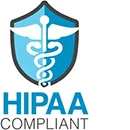
HIPAA
The Health Insurance Portability and Accountability Act of 1996 (HIPAA) is a federal law that required the creation of national standards to protect sensitive patient health information from being disclosed without the patient's consent or knowledge.

FERPA
The Family Educational Rights and Privacy Act of 1974 is a United States federal law that governs the access to educational information and records by public entities such as potential employers, publicly funded educational institutions, and foreign governments.
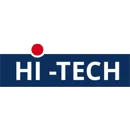
HITECH
The Health Information Technology for Economic and Clinical Health Act (HITECH Act) was signed into law as part of the American Recovery and Reinvestment Act (ARRA) bill in 2009 to drive the adoption and meaningful use of electronic health records (EHR) technology by US-based healthcare providers and their business associates.
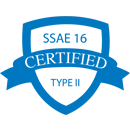
SSAE-16
16 (SSAE 16) is a set of auditing standards and guidance on using the standards, published by the Auditing Standards Board (ASB) of the American Institute of Certified Public Accountants (AICPA), for redefining and updating how service companies report on compliance controls.
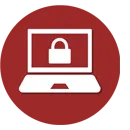
DIACAP
(US Department of Defense Information Assurance Certification and Accreditation Process) Superseding the earlier DITSCAP certification, DIACAP provides a standard for identifying, implementing and validating standardized information assurance controls.

FEDRAMP
FedRAMP is a government-wide program that provides a standardized approach to security assessment, authorization, and continuous monitoring for cloud products and services.
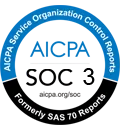
SOC 3
The SOC 3 is a general use public report of a service organization's controls over its systems relevant to security, availability, processing integrity, confidentiality, or privacy. The SOC 3 report differs from the SOC 2 report, in that it is meant for public consumption.
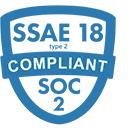
SSAE-18
Also known as Statement on Standards for Attestation Engagements (SSAE) No. 18, Attestation Standards: Clarification and Recodification. An internationally recognized accounting standard issued by the Auditing Standards Board of the American Institute of Certified Public Accountants (AICPA).
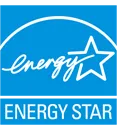
Energy Star
Energy Star is a government-backed labeling program that helps people and organizations save money and reduce greenhouse gas emissions by identifying factories, office equipment, home appliances and electronics that have superior energy efficiency.
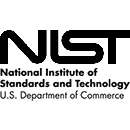
NIST
NIST SP 800-53 Rev. 4 under Marking. The means used to associate a set of security attributes with objects in a human-readable form in order to enable organizational, process-based enforcement of information security policies.
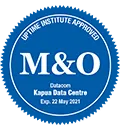
Uptime Institute MO Site Award
Uptime Institute Issued Awards. Uptime Institute has issued 1944 awards in 109 countries for our Tier Standard, M&O Stamp of Approval and Efficient IT programs. These awards represent the 3rd party validation of data center designs, constructed facilities, operational plans and overall efficiency.
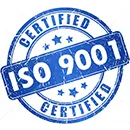
ISO
ISO compliance refers to ISO 9001, a quality management standard used by organizations to prove that they provide services and/or products that meet certain requirements. These requirements are regulated by the ISO 9000 series which is the only quality standard that businesses can aspire to.
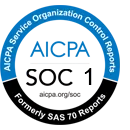
SOC 1
SOC 1 compliance affirms the security of your services and gives your organization the ability to provide clients with evidence from an auditor who has actually seen your internal controls in place and operating.
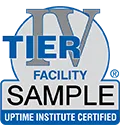
Uptime Institute Tier III Constructed
A Tier III data center is concurrently maintainable, allowing for any planned maintenance activity of power and cooling systems to take place without disrupting the operation of computer hardware located in the data center. In terms of redundancy, Tier III offers N+1 availability.
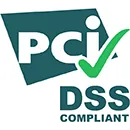
PCI
The Payment Card Industry Data Security Standard (PCI DSS) is an information security standard for organizations that handle branded credit cards from the major card schemes.
The PCI Standard is mandated by the card brands but administered by the Payment Card Industry Security Standards Council. The standard was created to increase controls around cardholder data to reduce credit card fraud.
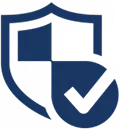
FISMA
FISMA compliance is data security guidance set by FISMA and the National Institute of Standards and Technology (NIST). NIST is responsible for maintaining and updating the compliance documents as directed by FISMA.
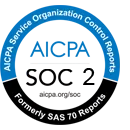
SOC 2
SOC 2 is an auditing procedure that ensures your service providers securely manage your data to protect the interests of your organization and the privacy of its clients. For security-conscious businesses, SOC 2 compliance is a minimal requirement when considering a SaaS provider.
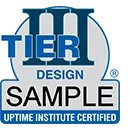
Uptime Institute Tier III Design
A Tier 3 data center is a location with redundant and dual-powered servers, storage, network links and other IT components. It is one of the most commonly used data center tiers, where IT components are powered with multiple, active and independent sources of power and cooling resources.
ABOUT NEUROLOGICALLY
NeuroLogically is a ONE STOP provider of full-suite technology development and management systems. We deliver sophisticated, cutting-edge, and user-friendly services for web and mobile applications, that are thoughtfully designed leveraging a dynamic database as the foundation. Our team consists of expert developers, many of whom are neurodiverse, which gives our organization a unique and exceptional advantage in unrestricted thinking and problem-solving. We have in-depth experience in healthcare, retail, education, hospitality, and many other industries.
SERVICES
INFORMATION
Copyright Neurologically, LLC © 2025, ALL Rights Reserved.
